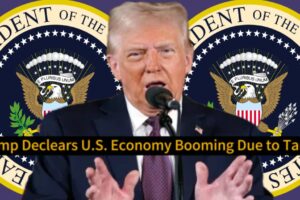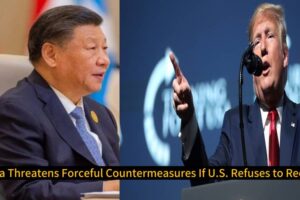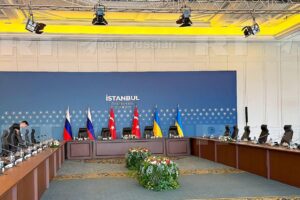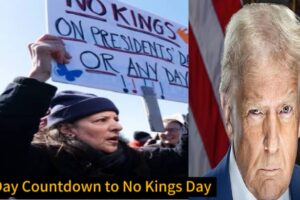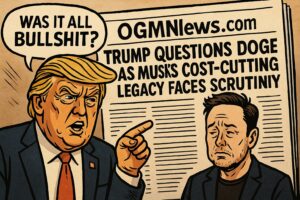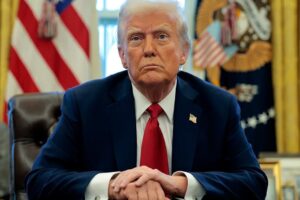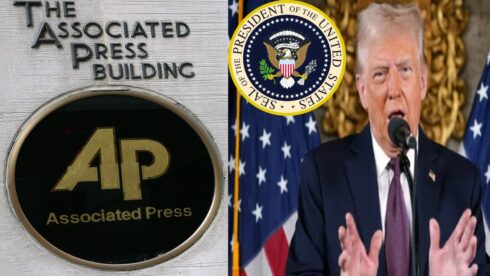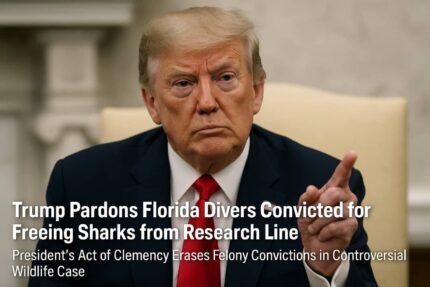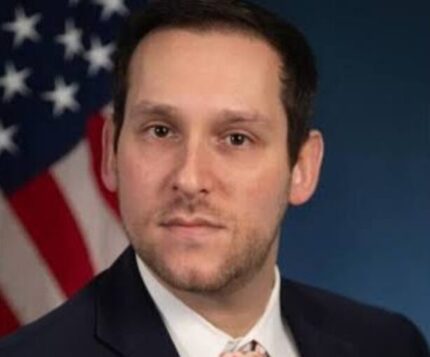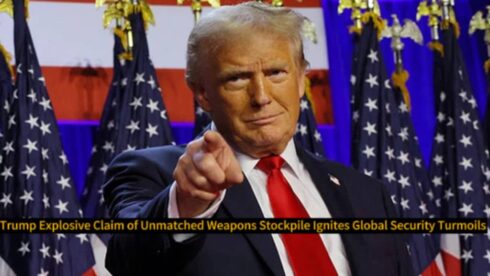U.S. President Donald Trump has finally addressed his controversial decision to ban the Associated Press (AP) from White House events, offering a convoluted and incoherent justification. Speaking at a press conference at Mar-a-Lago, Donald Trump attempted to explain his reasoning, but his remarks left many baffled.
The ban stems from the AP’s refusal to adopt Donald Trump’s newly coined term, the “Gulf of America,” instead of the established name, the Gulf of Mexico. Donald Trump’s remarks suggest that the decision is less about journalistic integrity and more about enforcing his own version of reality—an authoritarian move aimed at controlling the press.
Donald Trump’s Tangled Justification: A Word Salad of Misdirection
When asked about the AP ban, Donald Trump launched into an unstructured monologue, touching on everything from media bias to renaming historical landmarks. “It’s called the ‘Gulf of America’ now,” he asserted, before immediately contradicting himself, saying, “It’s not called the Gulf of America any longer.” His remarks left many questioning whether he even understood his own position.
Donald Trump also attempted to link the AP’s reporting style to an alleged liberal bias, criticizing its guidance on terms like “illegal immigrant” and “gender-affirming care.” However, his comments failed to provide any clear rationale for why these linguistic choices warranted an outright ban from White House events.
Press Suppression: A Pattern of Media Intimidation
This is not the first time Donald Trump has taken aggressive measures against the press. Throughout his presidency, he repeatedly attacked journalists, labeling critical outlets as “fake news” and singling out reporters for public ridicule. His administration even revoked press credentials for CNN’s Jim Acosta in 2018, though a judge later reinstated them.
By banning the AP, Donald Trump continues his long-standing pattern of attempting to suppress media organizations that refuse to align with his narrative. Experts warn that such actions are characteristic of authoritarian regimes, where controlling the press is a crucial step toward undermining democracy.
The “Gulf of America” Distraction Tactic
Donald Trump’s insistence on renaming the Gulf of Mexico appears to be an attempt to shift public attention away from more pressing national issues. While he fixates on forcing the AP to adopt his terminology, Americans are grappling with economic instability, rising food prices, and safety concerns in the airline industry.
His comparison to renaming Mount McKinley—now officially Denali—fails to hold water. The Denali name restoration was backed by historical and cultural significance, whereas “Gulf of America” appears to be a spur-of-the-moment invention with no basis in geography or history.
Donald Trump’s War on Facts: A Dangerous Precedent
Donald Trump’s rhetoric suggests he believes reality is malleable as long as he can pressure enough people to conform to his version of it. This approach extends beyond the AP ban—his attempts to rewrite history and redefine facts have been a cornerstone of his political strategy.
The danger here is that normalizing such behavior erodes public trust in factual reporting. If journalists are coerced into adopting government-approved language, the free press ceases to function as an independent check on power.
What Comes Next for Press Freedom in America?
Donald Trump’s ban on the AP raises critical concerns about the future of press freedom in the U.S. If a former president can pressure major news outlets into compliance, it sets a precedent for future administrations to do the same. The question now is whether media organizations, government officials, and the public will push back against these authoritarian tactics.
For now, the AP remains steadfast in its journalistic integrity, refusing to bow to Donald Trump’s demands. But the larger battle for media independence in the face of political coercion is far from over.




